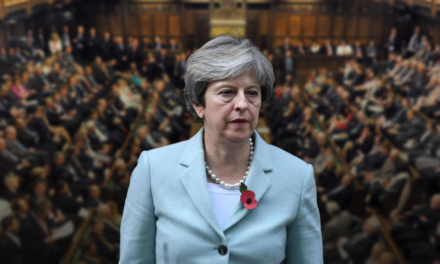Sir William Cash in an article to Conservative Home writes:
“The Bill will be taken on the floor of the Commons next Tuesday. The danger is therefore near, clear and present. There are good reasons of principle and of policy for not voting for these Lords amendments.
First, there are questions of principle. It would not be reasonable to support these amendments claiming that these are in aid of Parliamentary sovereignty, when it is perfectly obvious that the decision taken by the British people in the referendum was taken by a sovereign Act of Parliament itself, which deliberately transferred the decision away from the 650 Members of Parliament themselves to the people.
Second, how could one justify supporting amendments which were not originally accepted by the elected Commons during its consideration of the Bill, but only by the unelected Lords? Bear in mind that the Lords themselves agreed to vote for the Referendum Act. Furthermore, the Commons enacted that act by a margin of no less than six-to-one. Let me now turn to some of the Lords amendments that will be considered next week.
- The so-called ‘meaningful vote’ amendment, promoted by Viscount Hailsham, is an attempt to reverse Brexit. He disingenuously suggested that it protects the primacy of the Commons when it does no such thing – because the lower house, like the upper one, has no capacity collectively to decide the basis on which the Brexit negotiations should be conducted. The negotiations must be conducted by the Government in line with the democratic UK decision to leave. This cannot be prescribed by MPs who have abdicated by statute their ‘judgement’, as Edmund Burke put it, to the people.
- The so-called exit day amendment is intended to delay our exit from the EU. This amendment would unravel a decision taken in the Commons after detailed discussions.
- Although the wording of the further amendment relating to the Customs Union suggests merely the making of a statement about remaining in a customs union, it would if passed enable the EU27 to lay down the terms leading almost certainly to litigation and frustrating the repeal of the European Communities Act 1972.
- The European Economic Area amendment has in essence already been defeated twice in the Commons. We are only in the EEA because we are in the EU, which we are leaving. Furthermore, being in the EEA includes our conceding the free movement of people. This was categorically rejected in the EU referendum result.
- As to the amendment relating to Northern Ireland, this would simply give to the Irish government a veto over the Irish border issue; would undermine our sovereignty and make agreement with the EU27 impossible.
I was the promoter of the Maastricht rebellion, with dedicated colleagues who were fighting for the principle of our democratic self-government against European government. But it should be remembered that the Maastricht Treaty was preceded by neither a referendum, nor a White Paper, nor by a manifesto commitment, as this bill was last year.
Voting to support these Lords amendments would undermine the Government’s negotiations and Brexit itself. We are escaping the EU just as so many other member states are despairing at the EU’s lack of democracy and accountability, and its failures on immigration and the rule of law. Their electors are repeatedly voting with their feet. The referendum was an instruction by the British people to leave the EU. This Bill should be passed without these disreputable Lords amendments – and the Government and the United Kingdom must not be undermined at this critical junction in our history.” Please read the article here.


